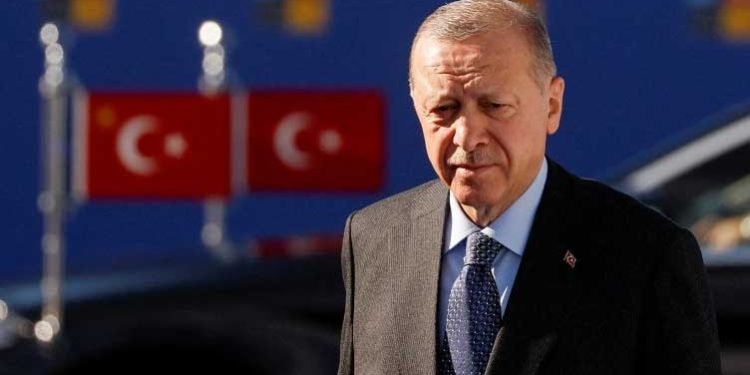Following weeks of deadly Turkish airstrikes in northern Syria, Kurdish forces and foreign actors are attempting to assess the seriousness of Ankara’s warnings of a land invasion.
Following a fatal November 13 attack in Istanbul, Turkish President Recep Tayyip Erdogan has frequently warned of a new land assault to force Kurdish organizations away from the Turkish-Syrian border.
Turkish police blamed the attack on the outlawed Kurdistan Workers’ Party, or PKK, and the People’s Protection Units, or YPG, located in Syria. Both have denied any wrongdoing.
Ankara began a volley of airstrikes on November 20, killing scores of civilians, including civilians, Kurdish fighters, and Syrian government troops. According to Human Rights Watch, the strikes aggravate a humanitarian crisis by disrupting power, fuel, and aid.
In the most recent event, Russian Deputy Foreign Minister Sergei Vershinin traveled to Turkey this week for talks over the Syrian crisis.
Here is a breakdown of what major foreign powers and parties involved in the Syrian war stand to gain or lose:
WHAT TURKEY WANTS
Turkey regards the Kurdish troops along its border with Syria as a threat and has conducted three major military invasions since 2016, capturing vast areas of territory.
Erdogan plans to send many of Turkey’s 3.6 million Syrian refugees to northern Syria, where construction of housing units has begun. The idea might address rising anti-refugee sentiment in Turkey and boost Erdogan’s support ahead of next year’s elections while diluting historically Kurdish-majority areas by relocating non-Kurdish Syrian refugees.
Erdogan has also announced plans to build a 30-kilometer (19-mile) security corridor across Kurdish-controlled territory. A planned Turkish invasion earlier this year was thwarted due to opposition from the United States and Russia.
THE KURDISH RESPONSE
Kurdish factions are urging the United States and Russia, both of which have military bases in northern Syria, to stop Turkey from following its threats.
The Kurds are concerned that the West will stand aside this time to satisfy Ankara in exchange for Sweden and Finland’s acceptance into NATO.
“This silence in the face of Turkey’s savagery would embolden Turkey to conduct a ground operation,” said Badran Jia Kurd, deputy co-chair of Syria’s Autonomous Administration in the North and East.
THE ROLE OF THE SYRIAN INSURGENTS
The Syrian National Army, a coalition of Turkey-backed Syrian opposition groups numbering tens of thousands of fighters, would almost certainly provide foot soldiers for any future combat offensive. The SNA has been accused of atrocities against Kurds and displacing thousands of people in previous operations, including the 2018 onslaught in Afrin.
Several SNA officials did not return phone calls or text messages from The Associated Press. One person who responded stated that Turkish authorities had told them not to discuss plans for a military incursion.
WHAT IS THE SYRIAN GOVERNMENT’S STANCE?
The Syrian government has opposed previous Turkish incursions. Still, it also regards the SDF as a separatist movement and a Trojan horse for the US, which has put crippling sanctions on Bashar Assad’s regime.
WILL THE UNITED STATES GET INVOLVED?
The US maintains a little military presence in northern Syria, where its strong support for the SDF has enraged Turkey.
However, the US initially said little publicly about the Turkish airstrikes, only after they came perilously close to US forces, causing anti-IS patrols to be briefly halted. Finally, last Thursday, US Secretary of Defense Lloyd Austin expressed “strong resistance” to a military offensive.
